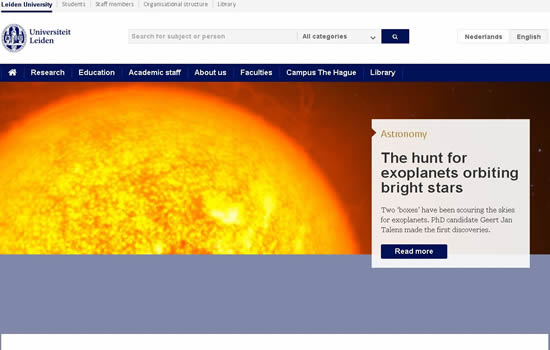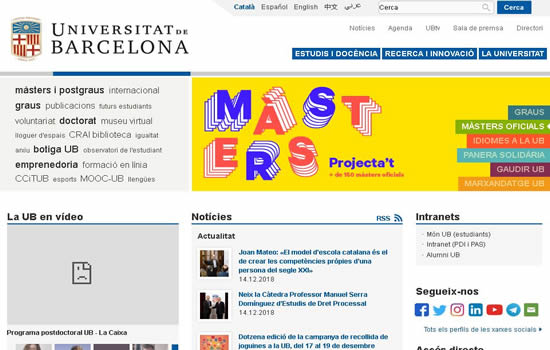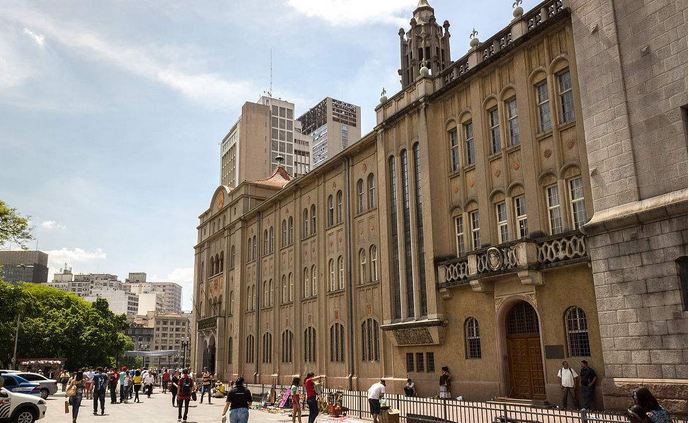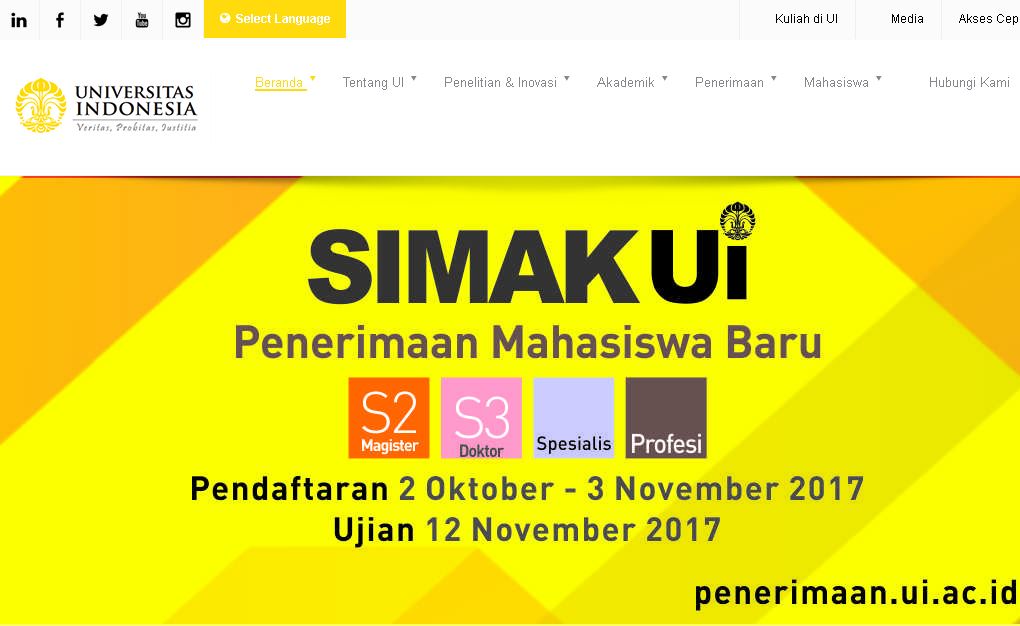选择热点
 荷兰莱顿大学
荷兰莱顿大学 西班牙巴塞罗那大学
西班牙巴塞罗那大学 巴西圣保罗大学 University of Sao Paulo, Brazil
巴西圣保罗大学 University of Sao Paulo, Brazil 台湾南华大学 University of South China in Taiwan
台湾南华大学 University of South China in Taiwan 科技大学 National University of Defense Technology
科技大学 National University of Defense Technology 南京大学 Nanjing University
南京大学 Nanjing University 上海复旦大学 Fudan University
上海复旦大学 Fudan University 泗水大学(Ubaya)
泗水大学(Ubaya) 印尼大学 universitas indonesia
印尼大学 universitas indonesia 越南某大学 Vietnam National University
越南某大学 Vietnam National University 菲律宾大学 University Of The Philippines
菲律宾大学 University Of The Philippines
几个并列连词的用法
发布时间:2025-01-06
来源:大学网站
几个并列连词的用法一、or的用法1.
表示选择,意为“或”、“还是”。
如:Would you prefer tea or coffee?
你喜欢茶还是咖啡?
Do you want a bath at once, or shall I have mine first?
是你马上洗澡,还是我先洗?
2.
表示一种否定的条件,意为“否则”。
如:Get up or you’ll be late for school.
起床吧,否则你上学会迟到了。
Hurry up, or you’ll miss the last bus.
快点,要不你会赶不上最后一班车。
【注】第一句的or等于if you don’t get up now,第二句的or等于if you don’t hurry up。
此时的or也可换成or else或otherwise
。
二、but的用法but主要用于表示转折。
如:They are poor but proud.
他们人穷志不穷。
He drives not carefully but slowly.
他开车不是很小心,而很慢。
He tried but without success.
他努力了但没有成功。
【注】不要按汉语意思将“虽然…但是…”直译为although…but…。
如:误:Though we are poor, but we are happy.
(去掉though或but中任一个)三、yet的用法与but一样,yet也主要用于转折。
如:It is strange yet true.
这很奇怪,却是真的。
I have failed, yet I shall try again.
我失败了,但我还要尝试
。
【注】有时可与并列连词and或but连用,构成习语and yet和but yet,且两者大致同义(均相当于表转折的but)。
如:She drove very fast to the airport, but [yet, and yet, but yet] she missed the plane.
她开快车去机场,可还是误了飞机。
四、for的用法for主要用于表示理由。
如:He must be out, for there is no light in the room.
他准是出去了,因为屋里没有灯。
She does not go out in the winter, for she feels the cold a great deal.
她冬天不出门,因为他特别怕冷。
【注】for表示结果通常不能放句首,也不能单独使用。
五、so的用法so主要用于表结果。
如:There were no buses, so I came by bicycle.
没有公共汽车,所以我就骑自行车来了。
The door was locked, so we couldn’t get in.
门上锁了,所以我们进不去。
It was dark, so I couldn’t see what was happening.
天很黑,所以我看不见发生了什么事。
I’m off on holiday, so I won’t be seeing you for a bit.
我要外出度假,所以有一段时间我就见不着你了。
【注】(1) 有时可与并列连词and连用,构成习语and so(相当so)。
如:He told me to do it and so I did it.
他叫我那么做,所以我就做了。
(2) 不要按汉语意思将“因为…所以…”直译为because…so…。
如:误:Because we was ill, so he couldn’t come.
(去掉because或so中任意一个)【几个并列连词的用法查看网站:[db:时间]】
表示选择,意为“或”、“还是”。
如:Would you prefer tea or coffee?
你喜欢茶还是咖啡?
Do you want a bath at once, or shall I have mine first?
是你马上洗澡,还是我先洗?
2.
表示一种否定的条件,意为“否则”。
如:Get up or you’ll be late for school.
起床吧,否则你上学会迟到了。
Hurry up, or you’ll miss the last bus.
快点,要不你会赶不上最后一班车。
【注】第一句的or等于if you don’t get up now,第二句的or等于if you don’t hurry up。
此时的or也可换成or else或otherwise
。
二、but的用法but主要用于表示转折。
如:They are poor but proud.
他们人穷志不穷。
He drives not carefully but slowly.
他开车不是很小心,而很慢。
He tried but without success.
他努力了但没有成功。
【注】不要按汉语意思将“虽然…但是…”直译为although…but…。
如:误:Though we are poor, but we are happy.
(去掉though或but中任一个)三、yet的用法与but一样,yet也主要用于转折。
如:It is strange yet true.
这很奇怪,却是真的。
I have failed, yet I shall try again.
我失败了,但我还要尝试
。
【注】有时可与并列连词and或but连用,构成习语and yet和but yet,且两者大致同义(均相当于表转折的but)。
如:She drove very fast to the airport, but [yet, and yet, but yet] she missed the plane.
她开快车去机场,可还是误了飞机。
四、for的用法for主要用于表示理由。
如:He must be out, for there is no light in the room.
他准是出去了,因为屋里没有灯。
She does not go out in the winter, for she feels the cold a great deal.
她冬天不出门,因为他特别怕冷。
【注】for表示结果通常不能放句首,也不能单独使用。
五、so的用法so主要用于表结果。
如:There were no buses, so I came by bicycle.
没有公共汽车,所以我就骑自行车来了。
The door was locked, so we couldn’t get in.
门上锁了,所以我们进不去。
It was dark, so I couldn’t see what was happening.
天很黑,所以我看不见发生了什么事。
I’m off on holiday, so I won’t be seeing you for a bit.
我要外出度假,所以有一段时间我就见不着你了。
【注】(1) 有时可与并列连词and连用,构成习语and so(相当so)。
如:He told me to do it and so I did it.
他叫我那么做,所以我就做了。
(2) 不要按汉语意思将“因为…所以…”直译为because…so…。
如:误:Because we was ill, so he couldn’t come.
(去掉because或so中任意一个)【几个并列连词的用法查看网站:[db:时间]】
- 上一篇: 涉及why not的五个考点
- 下一篇: 可说newspapers, tears吗
相关阅读
目录列表
资讯列表
英语资讯


共0条评论
网友评论温馨提示:您的评论需要经过审核才能显示,请文明发言!